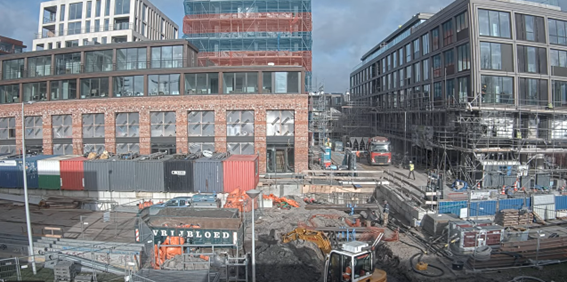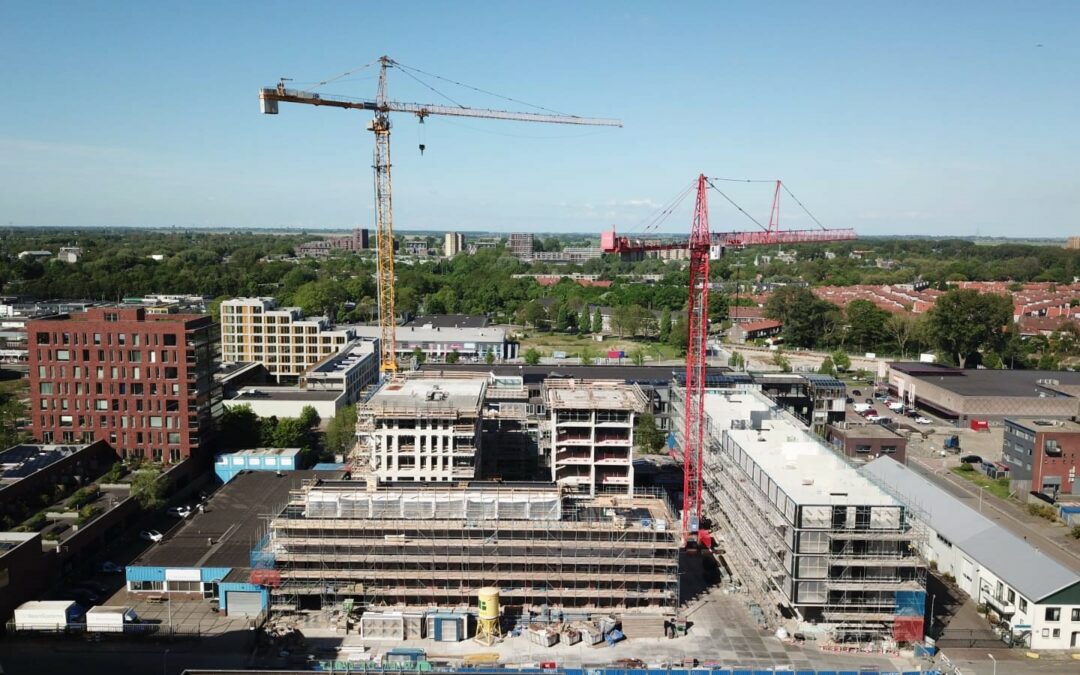After more than three years in the ATELIER project, the demonstration site of Republica is well under way to completion. Some of the apartment blocks are expecting delivery end of Quarter one, the hotel around summer 2023 and the remaining elements like commercial spaces at the end of the year. All-in all this is more than a year later than originally expected, a delay that mainly was caused by COVID. Fortunately, only small changes were needed in the design of the buildings and installations.
A few of the hurdles that needed to be overcome:
Sales of apartments slowed down significantly in spring 2020 at the start of COVID because of economic insecurity. One of the solutions to this problem was the splitting of larger apartments in two smaller ones to facilitate their sales and the sales of a group of apartments to an investor. This all was needed to secure financing as this was connected to the sales results.
The financing of the hotel was at stake as this branch of economic activity was under a lot of pressure during the pandemic and hotel operators shied away from new ventures. Several solutions were looked at, such as changing the hotel to a long-stay residency, but this was in contradiction with the zoning plan. In the end, in April 2022 finally a hotel operator was found and financing secured.
Some changes needed to be made in the application of vacuum toilets and kitchen grinders that were part of the PED measures to reduce the amount of energy flow out of the district. The vacuum toilets were abandoned altogether as initial experience with the technology showed teething troubles and issues with noise. This led to the decision not to use them but expand on the use of kitchen grinders to generate biogas in the so-called resource recovery station. This station needs input from various sources, also external from ATELIER and at the date of January 2023, the input is not yet enough to make the resource recovery station operational. In order to keep the kitchen grinder solution in sight in the future, a temporary solution has been agreed with the involved parties and the EU.

The other aspects of the building complex, such as the green roof, the large amount of solar panels, the smart grid, use of recycled materials and the battery are being implemented as planned. Furthermore, the inhabitants and occupants of Republica will be participants in an energy community. Organisational elements of the community such as governance, financial feasibility, legal constraints etc are topics in the Innovation Ateliers of the project.
An unforeseen challenge popping up in 2021/2022 is the congestion in the electricity grid affecting the connection capacity that Republica is allowed to use. This limitation is expected to last until 2025. While it does not threaten the completion of the buildings, it may affect the way in which the energy system can be used as specifically charging and discharging speed of the battery will be limited.
Author: Rudy Rooth, City of Amsterdam
Picture Credits: Banlieu
